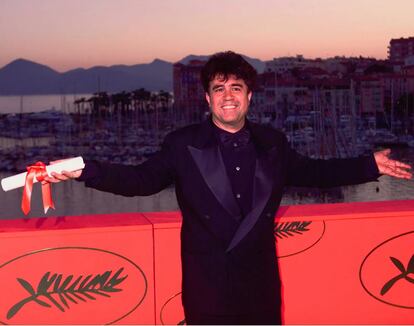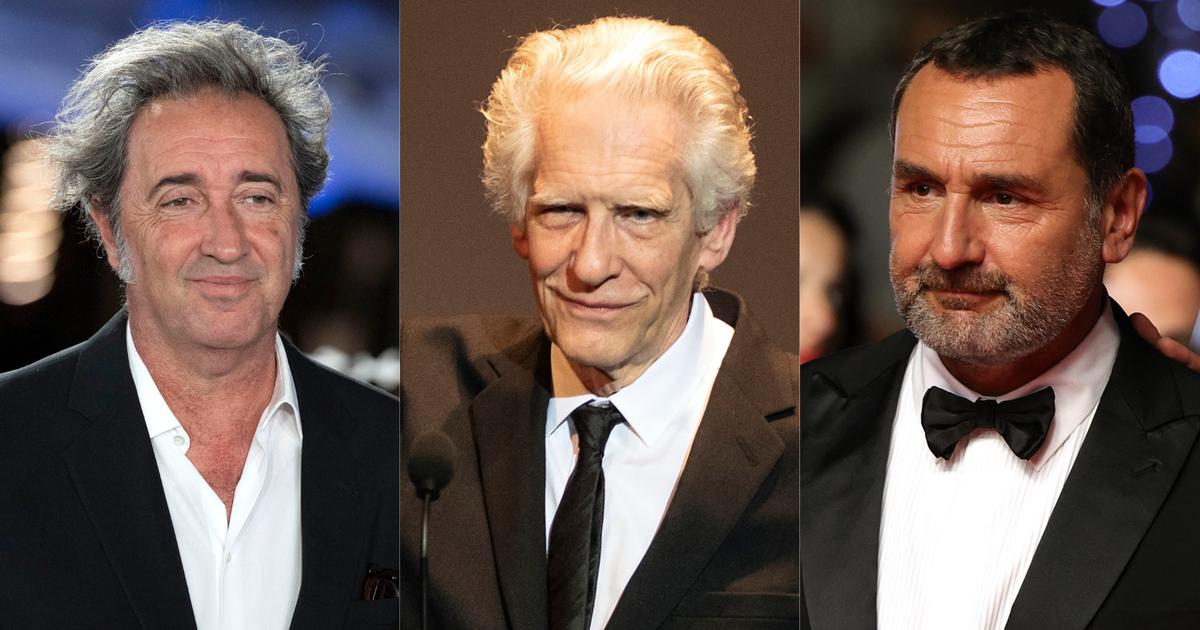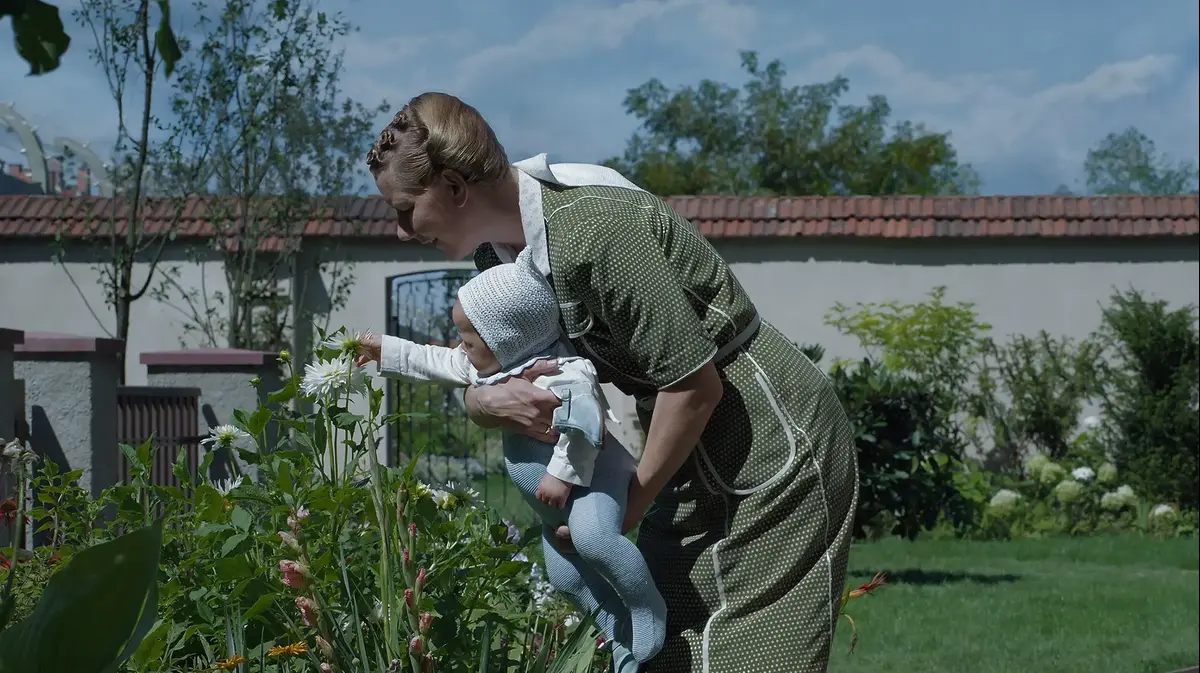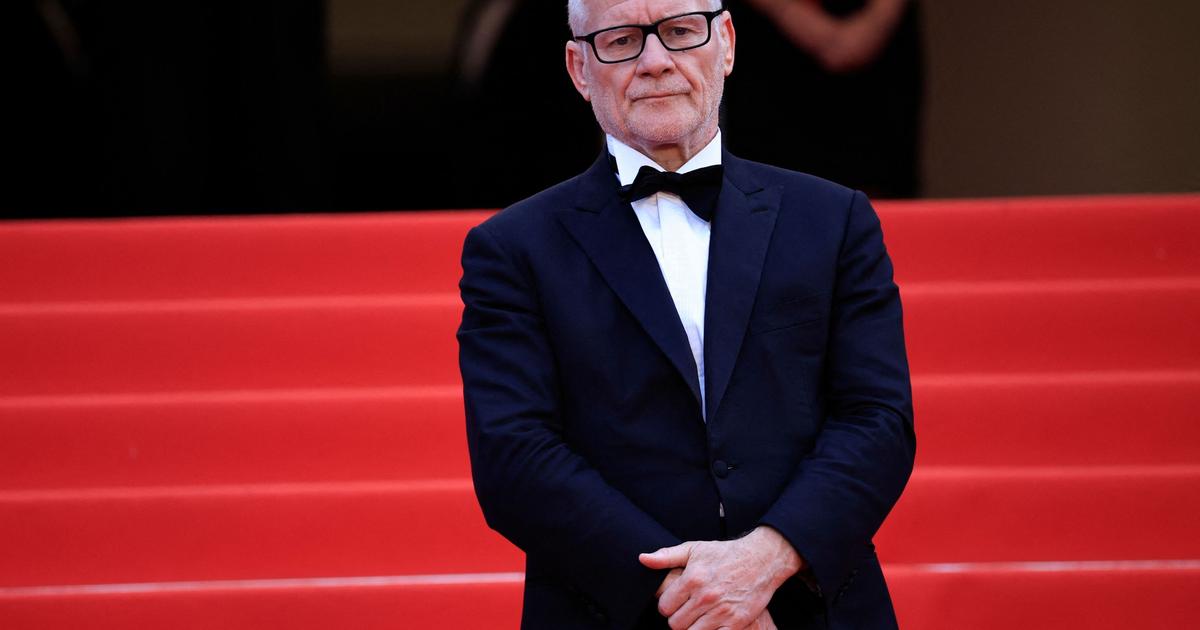At the end of May, one of the most powerful people in the world of culture is the president of the Cannes jury.
After the Oscar for best film, there is no prize more coveted in cinema than the Palme d'Or at the Côte d'Azur competition.
For some directors the European trophy is even more important.
Only two films have achieved both awards:
Marty
(1955) and
Parasites
(2019).
Now, the Oscar vote is massive, secret and anonymous;
On the other hand, the deliberation of the Palme d'Or, although it is also secret, is not massive or anonymous: everyone knows the name of the jury and, above all, that of its president, who, depending on his character, can behave differently. dictatorial.
More information
The star watcher speaks
The history of Cannes is full of anger, fights, bad decisions or controversial choices that have been vindicated over time.
One of the people who best knows the ins and outs of Cannes, Gilles Jacob, recounted some of these clashes
in his memoir,
Life will pass like a dream (
Citizen Cannes
) .
Jacob was the general delegate of the event from 1977 to 2000, and its president from 2001 to 2014. In an interview in EL PAÍS, he assured, after being asked if the day the winners were announced was equivalent to hell: “No, but it was purgatory, because of course it doesn't look anything like paradise.
In an unexpected decision, Vincent Lindon, president of the jury of the current edition of Cannes, has spoken with some journalists about his work hours before the joint presentation conference of all the members of that court.
Unexpected decision, because in the 21st century no one in charge had done it.
“Thierry Frémaux [the event's general delegate] has only told us one thing: 'We are completely free human beings', said the actor, who has just premiered
A New World in Spain.
In this way, he dispelled fears that he was a president managed from the organization, a label that for years marked the decisions of the Russian Nikita Mijalkov, famous for his ductility in resolutions.
"I'm not going to read a movie news, and I'll try to be myself.
I will avoid social networks and enjoy, together with my eight companions, this pleasure.
In my daily life I watch four or five movies a week;
here 21 in 15 days.
That said, a pleasure."
Along with him, the directors Asghar Farhadi, Ladj Ly, Jeff Nichols and Joachim Trier, the actresses and directors Rebecca Hall and Jasmine Trinca,
and actresses Noomi Rapace and
Deepika Padukone.
"On Monday we already spent four hours together, chatting, we have connected."
For Lindon, “in the deliberation there will be no messages, but pure love of cinema”.
But how will they make the decision?
“In an absolutely democratic way.
And if everyone likes a movie and I don't, I'll have to reflect within myself on what happens to me with that film”, the interpreter of
Titane,
last year's Palme d'Or, ends with a laugh.
“I hate friction and confrontation.
I believe in talking and sharing feelings.”
Vincent Lindon and, behind, Rebecca Hall, during the press conference of the Cannes jury on Tuesday at noon.Petros Giannakouris (AP)
It may not happen in this 75th edition, but there have been great battles in Cannes.
In one of the episodes of
Life will pass like a dream,
Jacob evoked the 1997 confrontation between Isabelle Adjani —then president—, Nanni Moretti and Mike Leigh.
Adjani wanted the Palme d'Or to go to
The Sweet Future,
by Atom Egoyan.
Moretti preferred the Iranian
The taste of cherries.
The Italian convinced Mike Leigh to support him, and they agreed.
They won
The Taste of Cherries,
by Abbas Kiarostami, and
The Eel,
by Shohei Imamura,
ex aequo.
Adjani called Leigh a “garden dwarf” and Moretti an “unbearable Machiavelli.”
Almost since its inception there has been controversy.
In 1953 she won
The Wages of Fear,
by French director Henri-Georges Cluzot.
Then there was no Palme d'Or, it was established two years later, but there was the award for best film.
And he was almost won by
Welcome, Mr. Marshall!,
by Luis García Berlanga, if he had not been on the jury, presided over by Jean Cocteau, by American actor Edward G. Robinson, who flew into a rage when he saw the sequence in which a little United States flag disappears down a sink, as a symbol of disappointment.
Cronenberg vs. 'All About My Mother'
Questionable decisions have been primed in Spanish cinema.
All about my mother
was one of the favorites for the Palme d'Or in 1999. The president of the jury, David Cronenberg, hated her.
Some time later, Pedro Almodóvar told EL PAÍS: “I will never be closer to winning than in 1999. David Cronenberg, president of that jury, will be haunted by that question for life [why he did not give him the Palm].
When you go to a contest, you should be aware that the list of winners is unpredictable, beyond the quality of the films, which I presuppose”.
In that year Almodóvar won the award for best direction.
In 2017, he himself presided over the jury and the award-winning film was
The Square,
by Ruben Ostlund.
The Spaniard, at the closing press conference of the festival, confessed something different, that the one that had really touched his heart was
120 beats per minute,
by Frenchman Robin Campillo.
“I was emotional from the beginning to the end.
Tomorrow we will see in the newspapers what the people and the journalists think of the winners (...) but this is a very democratic jury, of which I am a ninth part.
This is the only thing I can say.”
Pedro Almodóvar in Cannes, with his award for best direction for 'Todo sobre mi madre' (1999).
Among the most protested Palme d'Or announcements at Cannes are the triumphs of three American films.
Martin Scorsese's Taxi Driver
was greeted with boos in 1976 (Tennessee Williams presiding).
In 1990 neither critics nor journalists felt that
Wild Heart,
by David Lynch, deserved the award (Bernardo Bertolucci served as president).
And in 2004 Quentin Tarantino led his fellow jurors to a controversial Palme d'Or for
Michael Moore 's documentary
Fahrenheit 9/11 .
Tarantino himself had received a split opinion when he won with
Pulp Fiction .
(1994).
In contrast, in 2013 for many days the press debated whether Steven Spielberg, president at that edition, would dare to award
La vida de Adèle,
by Abdellatif Kechiche.
He did, he asked that the name of the two protagonists, Adèle Exarchopoulos and Léa Seydoux, also appear on the Palma, and he made fun of the journalists pointing out that although it did not resemble the cinema that he created, that did not mean that he did not know how to appreciate it .
In any case, these confrontations not only occur in Cannes, but in any festival.
And the scuffles, the same.
The emphatic words of Francesc McDormand, president of the jury of the 2011 San Sebastián festival, still resonate after seeing
No peace for the wicked,
by Enrique Urbizu.
"My husband [Joel Coen] does one like this every year."
The discussion is over.




/cloudfront-eu-central-1.images.arcpublishing.com/prisa/JTZPFATRZZJINCJVF4JFPRJEEU.jpg)










